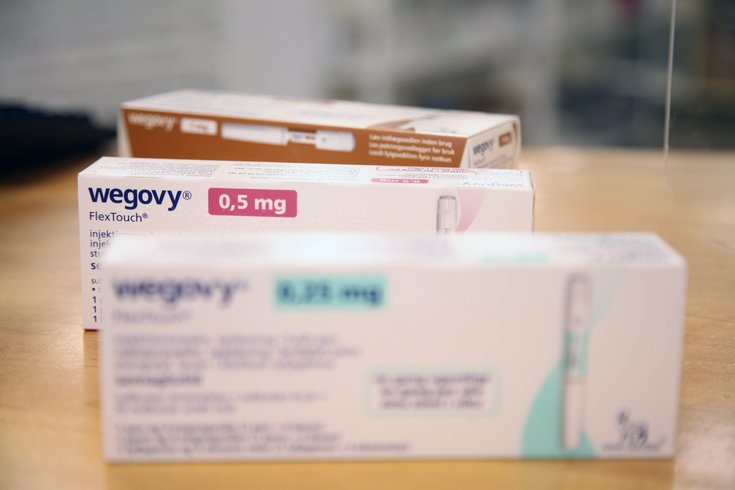
November 26, 2024
 Steffen Trumpf/dpa; Sipa USA
Steffen Trumpf/dpa; Sipa USA
Medicare and Medicaid would cover obesity drugs like Wegovy, above, for 7.4 million Americans under a new proposal from the Biden administration.
Weight-loss drugs like Ozempic and Zepbound would be covered by Medicare and Medicaid, giving access to millions of Americans, under a new proposal from the Biden administration.
"This proposal would allow Americans and their doctors to determine the best path forward so they can lead healthier lives, without worrying about their ability to cover these drugs out-of-pocket, and ultimately reduce health care costs to our nation," the administration said.
Ozempic and Wegovy, from Novo Nordisk, and Mounjaro and Zepbound, from Eli Lilly, are not currently covered by Medicare because a decades-old law prevents the federal program from covering weight-loss drugs.
The Biden administration wants to reinterpret that law by classifying these drugs as treatments for obesity and related conditions. Doing so also would require every state Medicaid program to cover them. Most do not.
The proposal would help an estimated 3.4 million people on Medicare and 4 million people on Medicaid prescription gain coverage for these drugs, according to the White House. The medications can cost more than $1,000 a month.
These weight-loss drugs, known as GLP-1s, have been approved by the Food and Drug Administration to treat obesity and diabetes. Research has found that they help lower the risk of chronic conditions linked to obesity, including diabetes and high blood pressure.
They also have been shown to reduce the risk of heart attack and other cardiovascular disease outcomes by up to 20%, the White House said. In March, the FDA approved the use of Wegovy for reducing the risk of heart attack, stroke and cardiovascular death in obese or overweight adults with cardiovascular disease.
GLP-1s have been excluded from the definition of Part D coverage, the Medicare program that helps cover the cost of prescription drugs. Coverage of these drugs have been an optional drug benefit for Medicaid programs, according to the Centers for Medicare and Medicaid Services.
An estimated 42% of Americans 20 and older have obesity and another 31% percent are overweight, according to the Centers for Disease Control and Prevention. People who are overweight or obese are at increased risk of developing diabetes, high blood pressure, heart attack, stroke, some cancers and problems with breathing, mental health, sexual function, fertility and pregnancy.
Among the approximately 13.7 million people on Medicare who are diagnosed obese or overweight, about 3.6 million also have cardiovascular disease. This population makes up about 7% of those on Medicare, according to a KFF analysis released in April.
The Biden administration's proposal must undergo a 60-day public comment period before it can take effect, meaning it will need to be finalized by the incoming Trump administration. Its fate is not clear. Robert F. Kennedy Jr., President-elect Donald Trump's choice to head the Department of Health and Human Services, spoke disparagingly of weight-loss drugs on Fox News last month, suggesting the obesity epidemic could be solved "overnight" by giving Americans three healthy meals every day. But Dr. Mehmet Oz, Trump's pick to lead CMS, has spoken favorably about weight-loss drugs on social media and on his talk show.